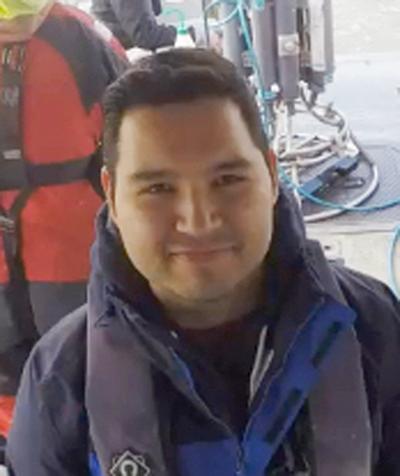Alejandro Pinto MSc ECE, 2016
PhD candidate

After studying civil engineering in Mexico, I became interested in continuing my studies in coastal engineering. When I was looking for masters programmes I had three things in mind: curriculum, university ranking and teaching staff.
The University of Southampton is well positioned in both national and international rankings, and you get to learn from the world’s leading experts.
Why did you choose to study MSc Engineering in the Coastal Environment at Southampton?
When I found ECE, it was clear that it ticked all the boxes. The curriculum gives you knowledge on all areas of coastal engineering, the University of Southampton is well positioned in both national and international rankings, and you get to learn from the world’s leading experts.
Was it a good choice?
It was a great choice. It was probably the busiest year of my life but it is completely worth it looking at all the things I learned and the things I got to experience. It opened so many professional opportunities for me that I can say it has been the best decision that I’ve made career wise.
What were the best things about studying your course at Southampton?
Fieldwork was a highlight for me. I really liked that we were responsible for planning them considering the data we needed to collect, the places where we needed to be and the time it would take us to get there. This meant spending a lot of time with course mates and even people from other programmes. You work and learn a lot but there's always time to have fun.
As well as this, I enjoyed studying at NOCS. It’s a great place filled with equipment and facilities and it isn't as busy as Highfield, so you don't have to worry about things like finding a quiet spot to revise or a room to work in groups. In particular, I enjoyed the “coastal coffee” on Monday mornings at the NOCS canteen where we would chat with lecturers, programme leaders and fellow students in a more relaxed environment.
What was/ has been your standout highlight during the course?
There are two highlights for me. I liked having Modelling Coastal Processes as an intensive module. We developed a project, which included learning new software, planning a boat trip, writing a mini-thesis and doing a final presentation. It’s an extreme month of work, I spent full days at NOCS (yes, including weekends) but it prepares you for what you might experience in the professional world.
The second one is being stuck in the mud at Hurst Spit while helping a course mate to collect core samples for her MSc project. Having to crawl out of the mud as we had the incoming tide still makes me laugh and it is one of my favourite memories.
What do you want to do in the future?
I want to work towards getting my ICE chartership while I gain professional experience. I would like to do this in a position where I can help coastal communities adapt to the ever-increasing climate threats.
What was your career path following graduation from your course?
I started my PhD In Southampton in March 2017, focused on the dynamic evolution of flood risk at the Solent, UK. In the meantime, I have been working with my supervisor Professor Robert J. Nicholls and Dr. Thomas Wahl to publish a scientific journal derived from my MSc dissertation.
What advice would you give to students hoping to follow in your footsteps?
Make the most of your time on the course. I know it's what everyone says but you'll have the chance to learn a lot and interact with leading experts, so do take the masters as seriously as you should and get ready to work a lot and spend days at the masters cluster in NOCS. That being said, by all means, take every opportunity to have fun and bond with your classmates. You'll end up with friends for life from all over the world.